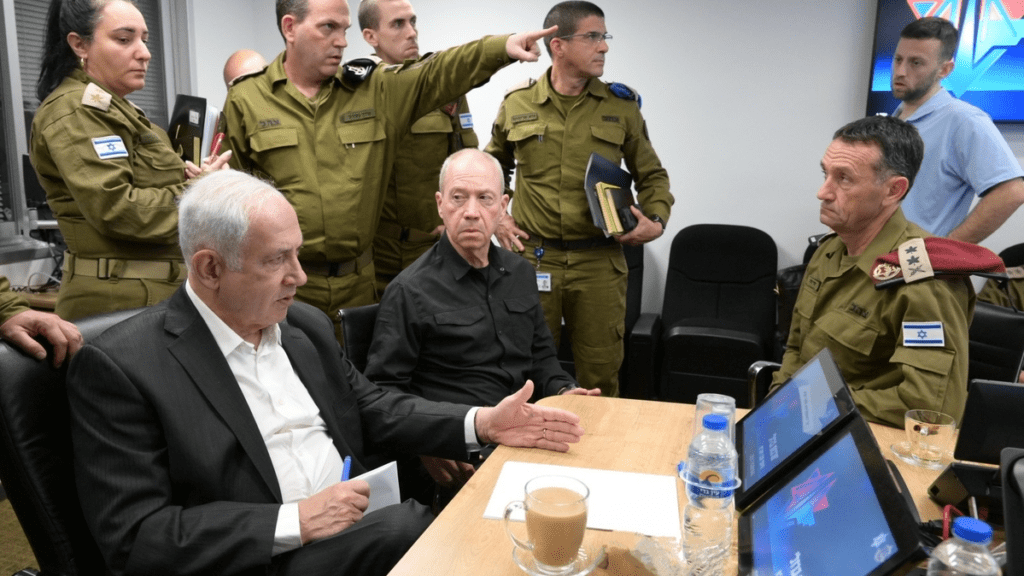Operation Al-Aqsa Flood, a sophisticated and deadly campaign by Hamas militants deep inside Israeli territory, represents a massive failure by Israel’s defense, security, and intelligence community. The Shin Bet domestic intelligence agency, Israeli Military Intelligence, and Mossad all failed to pick up on the group’s extensive planning, training, and supply activities as it prepared the complex assault by land, sea, and air.
Even neighboring Egypt’s mukhabarat, who run human intelligence networks in Gaza, clearly failed to detect what was being planned—although they reportedly told the Israeli government that an operation of some sort was imminent but were ignored.
Israel was long believed to have a comprehensive intelligence-gathering operation in Gaza and the West Bank, in cooperation with elements of the Palestinian Authority dominated by Hamas’ rivals Fatah.
Yet, as in June 2007 when Hamas ousted Fatah and took control of the Gaza Strip, the militants have caught Israel off-guard through a system of strict secrecy and operational discipline. Historically, Israel has had a poor record of infiltrating Hamas to gather the kind of advanced intelligence that could have prevented Operation Al-Aqsa Flood. That contrasts with its record with some other Palestinian factions in Gaza. Before Hamas drove out the Fatah-led PA from the territory, PA security and intelligence agencies worked with Israel—especially the Preventive Security agency headed by Mohammed Dahlan—because they considered Hamas a common enemy.
Hamas, on the other hand, has always maintained tight discipline within its ranks. Its ideological foundation created a type of dedication that was often absent from other Palestinian factions. The organization has maintained strict silos between different elements of the movement. This is most evident when looking at the Izz ad-Din al-Qassam Brigades, its armed wing. The brigades’ commanders, trainers, operatives, and cadres operate a cell-system that has proved highly resistant to infiltration or sabotage by intelligence agents or other actors.
Local Intelligence Outmaneuvers Israel
Of course, it would be naïve to assume that Hamas is completely immune to intelligence failures. After all, Shin Bet and other Israeli intelligence actors do capture Palestinian suspects and rely on coercive methods condemned by rights groups as torture to extract information.
Yet Hamas, which has its own intelligence and counterintelligence apparatus, appears to be more adept than other groups when such captures occur. Gaza, as many have highlighted, is one of the most densely populated territories in the world. In this open-air prison of some 2.3 million besieged Palestinians, one can barely sneeze, let alone fall into the hands of Israeli security or intelligence forces, without someone seeing and reporting it back to the territory’s rulers.
Gazans, after more than 17 years of a land, sea, and air blockade by Israel largely ignored by the international community, have little left to lose. What is more, they know every inch of the border that separates them from Israel. It was not a Hamas intelligence coup that led to an intimate knowledge of each Israeli sentry post, military base, settlement, and berm that abuts their lands in Gaza. It was the fact that everyone in communities near the barrier looks through it on a daily basis at the land Israel continues to deny them. This is why Hamas knew the route across, and where the remote cameras and surveillance points were located: almost everyone in Gaza does. It doesn’t take strategic input from Tehran or its Islamic Revolutionary Guard Corps to gather that kind of intelligence.
Moreover, Gaza’s checkpoints and crossings have been policed by Hamas since June 2007. The organization doesn’t need advanced technology to know what is happening. It, too, turns informants into double agents to score yet another strike against Israel and its intelligence apparatus.
Israel knows this. It has long understood the systematic approach of the leadership and cadres of Hamas to control the levers of violence, in a precise and highly calibrated fashion. Hamas pulls this off without the kind of intelligence fails, ineptitude and structural weaknesses that always characterized their Palestinian counterparts such as Fatah’s armed factions and PA security forces in the Gaza Strip.
In the past, Israel relied on this approach from Hamas military and political leaders to effectively maintain and “police” ceasefire agreements that brought a temporary halt to the rockets and missiles fired into its southern communities and beyond. This was part of a necessary bargain that ensured that violence became a lever of conflict management.
What such discipline and control never brought, however, was an opportunity to build on those ceasefires to mediate serious negotiations between Israel and the Palestinians to a proper resolution of the conflict.
A Strategic Fail
For the past few years, Israel has turned much of its attention away from the Palestinians it occupies and shifted toward forging regional alliances to counter Iran. For intelligence, it has increasingly relied on the ineffective PA agencies who have been effectively cut out of local intelligence sharing loops, along with Egypt, Jordan, and others. Meanwhile, Israel has continued to implement its draconian policies against the Palestinians and been unwilling to countenance their longstanding political grievances and aspirations. Together, these security and political failings led to the worst attack on its soil in decades, a fiasco from which the reputation of Israel’s vaunted intelligence community may never recover.
The opinions expressed in this article are those of the author and do not necessarily reflect the views of the Middle East Council on Global Affairs.


